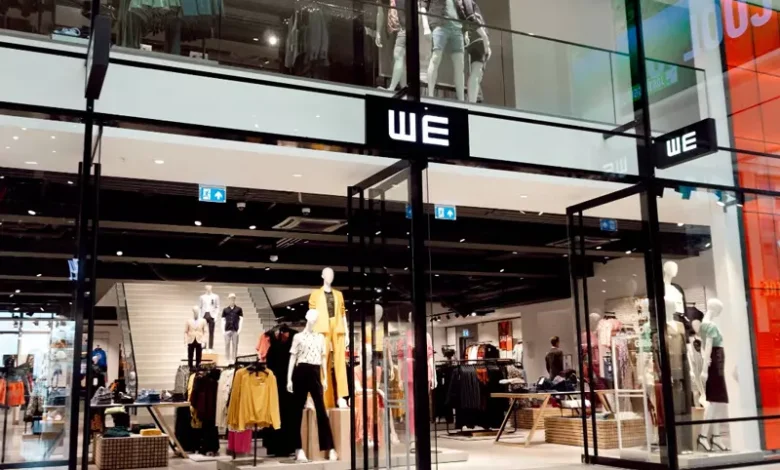The Ever-Evolving World of Fashion Jobs: Opportunities and Pathways to Success

The fashion industry is a dynamic and ever-changing landscape that combines creativity, commerce, and culture. It is a realm where art meets functionality, and individual expression becomes a universal language. Fashion jobs encompass a wide array of roles that cater to every aspect of the industry, from design to marketing, production to retail, and everything in between. Fashion Jobs This article delves into the opportunities, challenges, and trends within the fashion job market, providing insights into building a successful career in this vibrant sector.
1. Understanding the Scope of Fashion Jobs
The fashion industry is one of the largest global markets, contributing significantly to the world’s economy. It is a multi-billion-dollar industry that creates employment opportunities across various domains. Fashion jobs can be broadly categorized into the following areas:
Fashion Design: The creative heart of the industry, involving conceptualization and creation of apparel, footwear, and accessories.
Textile and Fabric Technology: Working with materials to develop innovative fabrics and sustainable options.
Fashion Marketing and Merchandising: Promoting brands, curating collections, and strategizing sales.
Retail and Sales: Customer-facing roles that directly connect consumers with products.
Fashion Journalism and Media: Writing, editing, and reporting on trends and news in fashion.
Product Development and Production: Overseeing the journey from design to finished product.
Styling and Personal Shopping: Helping individuals or brands achieve a desired aesthetic.
Sustainability and Ethical Practices: Ensuring fashion aligns with environmental and ethical standards.
2. The Growing Demand for Fashion Professionals
The global fashion industry continues to expand, with emerging markets in Asia, Africa, and South America driving new growth. The rise of e-commerce, technological advancements, and the increasing importance of sustainability have redefined the industry’s needs, creating a surge in demand for skilled professionals. Roles such as digital marketers, data analysts, and sustainability officers are now as integral as traditional jobs like designers and merchandisers.
3. Key Skills Required in Fashion Jobs
To succeed in the competitive world of fashion, professionals need a unique blend of technical expertise, creativity, and interpersonal skills. Below are some key attributes:
Creativity and Innovation: Essential for roles in design, styling, and branding.
Technical Knowledge: Expertise in pattern making, fabric technology, and production processes.
Business Acumen: Understanding market trends, consumer behavior, and retail strategies.
Communication Skills: Crucial for collaboration and customer engagement.
Adaptability and Resilience: Navigating a fast-paced, high-pressure environment.
Sustainability Awareness: Knowledge of ethical practices and eco-friendly solutions.
4. Career Pathways in Fashion Jobs
The path to a career in fashion can vary depending on individual interests and goals. Here are some popular pathways:
Formal Education: Degrees in fashion design, textile technology, or business management provide foundational knowledge.
Internships and Apprenticeships: Hands-on experience is invaluable for building skills and industry connections.
Freelancing and Portfolio Building: Demonstrating your abilities through a strong portfolio can open doors.
Networking: Attending fashion events, joining professional associations, and leveraging social media can expand your opportunities.
5. Emerging Trends in the Fashion Job Market
The fashion industry is in a state of flux, driven by technological innovation, shifting consumer preferences, and global challenges. Key trends influencing fashion jobs include:
Digital Transformation: From virtual fashion shows to AI-powered design tools, technology is reshaping every aspect of the industry.
Sustainable Fashion: There’s a growing demand for roles focused on reducing waste and promoting ethical practices.
Diversity and Inclusion: Brands are prioritizing representation, creating opportunities for diverse voices.
Personalization: Customization and on-demand manufacturing are creating niche markets.
Globalization: Cross-cultural influences are leading to collaborative projects and international career opportunities.
6. Challenges in Fashion Jobs
While the fashion industry offers exciting opportunities, it also presents unique challenges:
High Competition: The industry attracts talent worldwide, making it highly competitive.
Fast-Paced Environment: Trends change rapidly, requiring constant adaptation.
Work-Life Balance: Long hours and tight deadlines can be demanding.
Sustainability Pressure: The need to balance creativity with environmental responsibility.
Economic Fluctuations: The industry is sensitive to global economic changes.
7. Building a Successful Career in Fashion
Success in fashion jobs requires a proactive approach and a willingness to learn. Here are some tips for aspiring professionals:
Stay Updated: Keep abreast of industry trends, technological advancements, and market dynamics.
Develop a Niche: Specializing in a specific area can set you apart.
Seek Mentorship: Learning from experienced professionals can provide valuable guidance.
Showcase Your Work: Use platforms like Instagram, Behance, or personal websites to display your portfolio.
Be Resilient: Perseverance is key in navigating the ups and downs of the industry.
8. The Role of Technology in Fashion Jobs
Technology has become a cornerstone of the fashion industry, creating new job roles and transforming existing ones. Notable developments include:
AI and Machine Learning: Enhancing design, trend forecasting, and inventory management.
3D Printing: Revolutionizing prototyping and production processes.
Augmented and Virtual Reality: Elevating the shopping experience and virtual runway shows.
Blockchain: Ensuring transparency and authenticity in supply chains.
Social Media: Influencing marketing strategies and consumer engagement.
9. The Impact of Sustainability on Fashion Careers
Sustainability is no longer a buzzword but a necessity. This shift has created roles in:
Sustainable Sourcing: Finding eco-friendly materials and suppliers.
Circular Fashion: Designing for recyclability and reuse.
Green Marketing: Promoting sustainable practices.
Ethical Compliance: Ensuring adherence to labor and environmental standards.
10. Inspirational Stories from the Fashion World
Many successful professionals started small before making their mark. For instance:
Gabrielle Chanel: Began as a hat maker and revolutionized women’s fashion.
Ralph Lauren: Started with a single tie collection before building a global empire.
Virgil Abloh: Merged streetwear with high fashion to create Off-White.
Conclusion
Fashion jobs offer a spectrum of opportunities that cater to diverse talents and interests. While the journey may be challenging, the rewards—both creative and professional—are immense. By staying informed, honing skills, and embracing innovation, aspiring professionals can carve out a successful and fulfilling career in this ever-evolving industry. The key is to remain adaptable and passionate, as fashion is not just a profession but a way of life.



